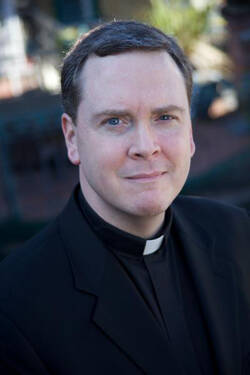The bell tolled last month for Francois Mourad, a Franciscan priest and hermit, who died on June 23 after soldiers linked to a jihadist group attacked the monastery near Ghassanieh, Syria where he had taken refuge. The Syriac Catholic Archbishop of Hassake-Nisibi told Fides news agency that Father Mourad “sent me several messages which showed he was aware of living in a dangerous situation and was willing to offer his life for peace in Syria and the world.” Father Pierbattista Pizzaballa, the Franciscan priest who is head of the Franciscan Custody of the Holy Land, told Vatican Radio that Ghassanieh—”like other Christian villages—has been almost completely destroyed and is almost totally abandoned.... The only thing we can do, other than pray for Father Francois and all the victims, is pray that this folly ends soon and that no more weapons are sent to Syria.”
The news of Father Mourad’s murder, frankly, left me despondent: Like Job, I thought, “my soul is weary of my life.” As much as I wish it were otherwise, the truth is that this sort of news is very familiar, almost expected in a way: it is, to borrow a phrase from Evelyn Waugh, merely a blow upon a bruise, just another right uppercut to the soul. And along with Job I find myself wondering whether we’re going to make it. Humankind, I mean.
America’s staff spent the last two weeks crafting this issue’s editorial on the conflict in Syria. It is a thoughtful, well-written and intelligent analysis from a Catholic Christian perspective. And yet it seems so inadequate in light of events. If this were a movie, then the news from Syria would constitute what writers call the “all-is-lost moment,” the scene between pages 75 and 90 of a screenplay when the protagonist is as far away as possible from achieving his or her goal. It’s tempting sometimes to think that life is a perpetual all-is-lost moment. We know in faith, however, that the all-is-lost moment, as in a good screenplay, is not and cannot be the end of the story. The Lord has already conquered death; the final act is already written.
It’s not always easy to believe that, of course, but stories like Joey Kane’s help. Young Mr. Kane’s account in this issue of his life with Down syndrome is the first in a new series we’re calling “Generation Faith,” articles by high school and college students about the role that faith plays in their increasingly complicated and challenging lives. “Some people,” Joey writes, “may think that I would be treated badly because I have Down syndrome. My experience has not been this way. God tells everyone to treat people equally, and I think that most people act in this way.” Thus a light shines in the darkness and the darkness has not overcome it.
Elsewhere in this issue, Katie Rose Quandt looks at how faith-based advocacy groups are making headway in their efforts to end the cruel practice of solitary confinement, and William O’Brien discusses the radically transformative power of forgiveness. “Authentic Gospel forgiveness is not innocent piety; it is revolutionary. It betokens the collapse of one form of social order and announces a new one: the reign of God,” Mr. O’Brien writes.
“What moral resources are available for Catholics to discern the best path forward?” the editors ask with regard to Syria. The resources available, of course, are the radical love and forgiveness to which the Gospel testifies, the values exemplified in the lives of Joey Kane and his brother, Matt—the same values for which Father Mourad gave his life and that are captured so well in the prayer he would have surely known by heart: “Make me a channel of your peace/ Where there’s despair in life let me bring hope/ Where there is darkness, only light/ And where there’s sadness, ever joy.”








